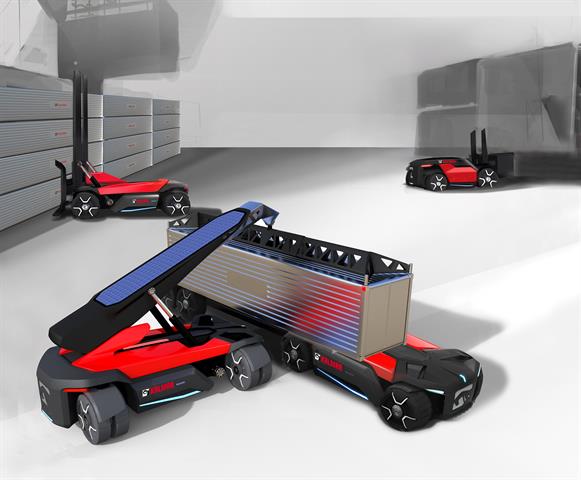 Kalmar sees an electric future |
Kalmar has announced its commitment to reduce emissions in cargo and materials handling operations by fostering eco-efficient technologies. Kalmar says electrically powered versions of its full offering will be available by 2021. The target is in line with Cargotec's sustainability roadmap announced in 2016.
The first electrically powered machine developed by Kalmar, an electric forklift for smaller capacity ranges, was introduced to the market in 2008, and since then, Kalmar has systematically extended its offering with diesel-electric, hybrid and electrically powered machines to help customers reduce the environmental impact of their operations. Today, over 50% of Kalmar cargo handling equipment is available with electric power sources.
"Our industry is evolving at a remarkable pace," says Antti Kaunonen, president, Kalmar. "Governments, local and regional authorities around the globe, are rapidly deploying regulations and initiatives to support the adoption of eco-efficient technologies. A prime example of this development is the Green Air Act in California, US.
"At the same time, our customers are asking for electrically powered equipment and solutions that cut emissions.
"Kalmar has a strong track record in providing efficient cargo and materials handling solutions to our customers, and we've consistently revolutionised container handling for the benefit of our customers," he says, adding that the next step is a commitment to provide a full offering which is electrically powered by 2021.
Kalmar has also introduced its future vision for mobile equipment.
"The vision for Kalmar Future Generation is a result of significant investments in research and development in order to envisage how the future of materials handling solutions will look like," says Dan Pettersson, SVP mobile equipment at Kalmar. "We believe electricity is the power source of the future and that purpose-built design and integrated serviceability will enable maximum availability and performance for the materials handling fleets.
"In the near future, driverless vehicles will enter the logistics operations in industrial and materials handling, expanding the benefits of automation to the full logistics chain in the customer operations. We at Kalmar believe that by harnessing the power of new technologies, we will create state-of-the art materials handling solutions with a cutting-edge design that will keep our customers ahead of the game," he concludes.